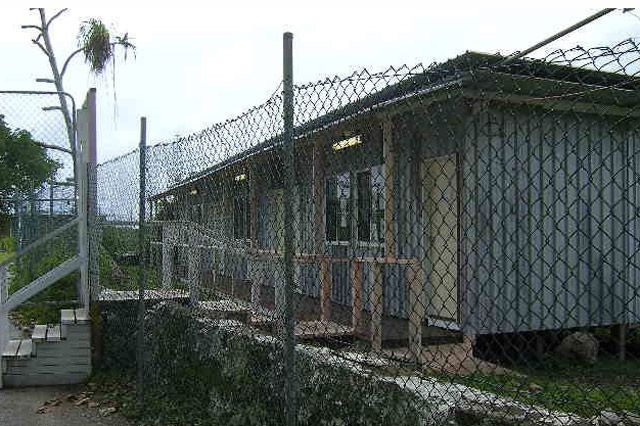 On Wednesday 3rd February, the Australian High Court heard a case brought forward by the Human Rights Law Centre, concerning a plaintiff from Bangladesh who stood to be deported back to Nauru. The case challenged the lawfulness of the detention centre in a third party State along with the Government’s funding of it. Unfortunately, the case was dismissed with the final decision that the detention centre on Nauru was entirely in line with Australian constitution.
On Wednesday 3rd February, the Australian High Court heard a case brought forward by the Human Rights Law Centre, concerning a plaintiff from Bangladesh who stood to be deported back to Nauru. The case challenged the lawfulness of the detention centre in a third party State along with the Government’s funding of it. Unfortunately, the case was dismissed with the final decision that the detention centre on Nauru was entirely in line with Australian constitution.
Whilst the emerging reports of multiple abuses of basic human rights continue to cause concern, courts are being forced to consider whether a person faces serious risk in returning to Nauru. One such case includes that of a five year old boy who was allegedly raped in Nauru by a person who is still residing there. Unfortunate though this is, the morality of the issue was not in question for the High Court, which found in favour of the Government with a majority 6-1 vote. Daniel Webb from the Human Rights Law Centre, who brought the case forward, spoke on ABC radio before the hearing, saying that it was not only legality, but morality that had to be considered. In this sense, the argument strayed from the primary agenda in that morality does not change the nature of the constitution and the High Court found that the Australian Government is well within its rights to detain migrants at Nauru and, furthermore, that funding for the centres is entirely valid.
The validity of funding was called into question due to a slight amendment made to the Constitution last year. This change was drawn with the expectation of the challenge from the Human Rights Law Centre. Justice Michelle Gordon, who offered the only dissenting opinion, felt this recent June addition to the constitution was rushed and created an invalid loophole.
By funding the deportation and all other living costs, including $3000 for a Protection Visa, the Australian government then hands over all responsibility to Nauru. Now, whilst punitive detention of an asylum seeker is illegal under international law, the Australian government has made it clear that they have not remanded any person into custody onto Nauru, despite the fact that the Memorandum of Understanding (MOU) between Australia and Nauru requires forcible detention of the applicant in the Regional Processing Centre, which is on Naura and secured by perimeter fencing and private contractors Transfield and Wilson Security.
Prime Minister Malcolm Turnbull maintains his strict stance on people smugglers, citing the importance of border security as the primary goal behind the regime of deportation for asylum seekers. The Australian Government may be using the detention centres as exemplary models to deter potential people smugglers and illegal immigrants, however the conditions on Nauru for those who have already arrived may continue to be sacrificed for the broader message that our government is sending.
Human Rights experts from the United Nations urged Australia to consider the interests of children facing deportation to Nauru. Immigration Minister Peter Dutton says that decisions on deportation will be considered individually, based on medical conditions. while over ten churches and cathedrals have offered the ancient practice of sanctuary to any asylum seekers, reflecting the overall spirit of compassion that Australia has adopted for those seeking a better life.